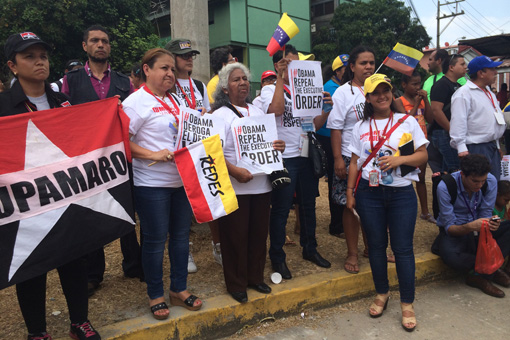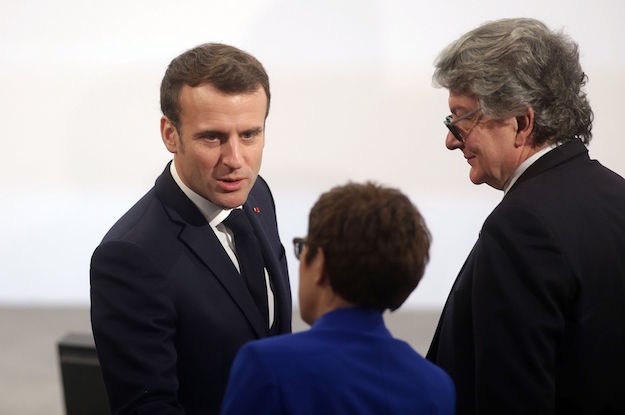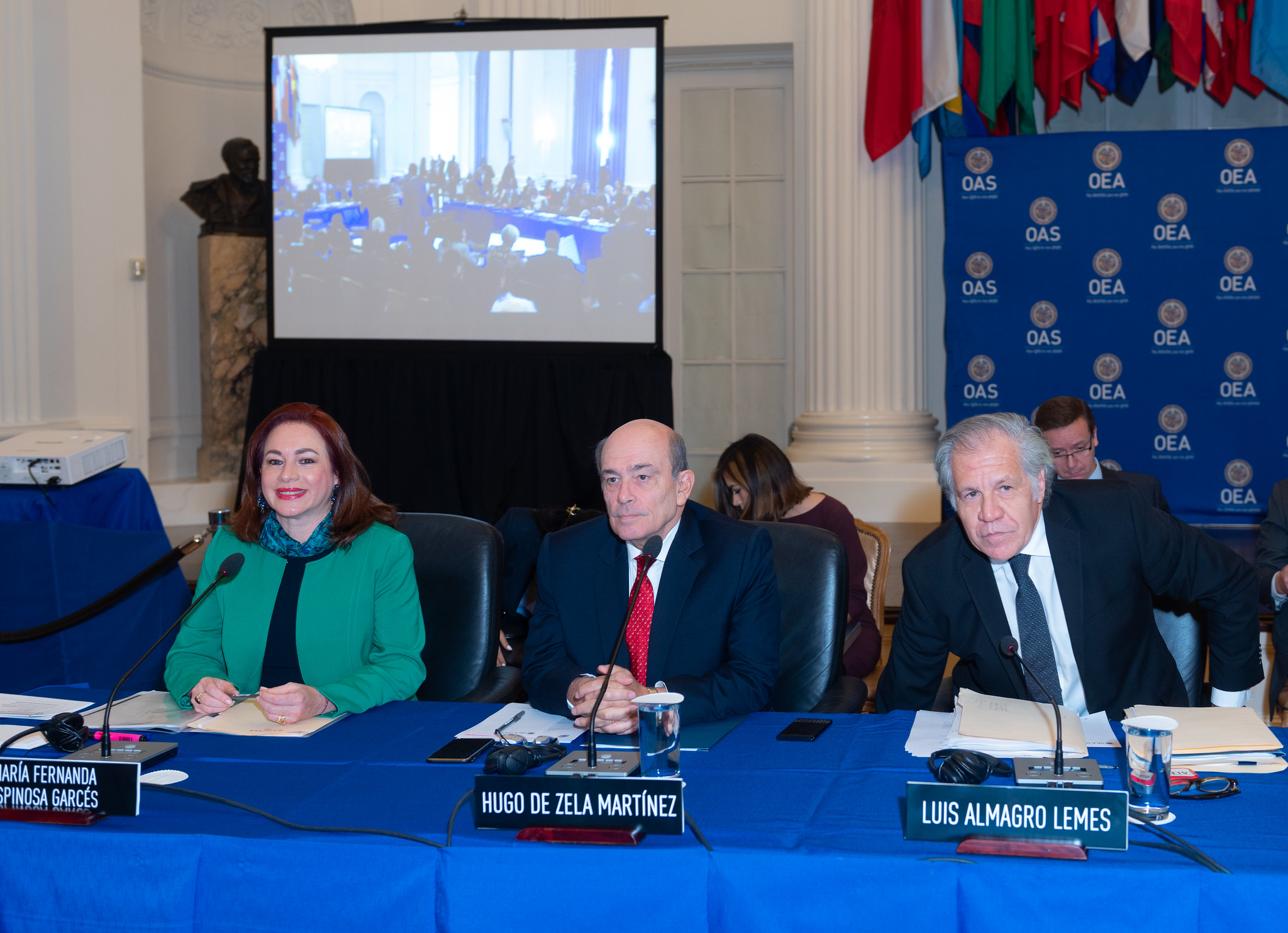Before it even began, the 7th triennial Summit of the Americas was considered a success by many, based simply on the invitation list.
Cuba, attending for the first time, did not disappoint as the star of the show. On day one of the Summit, Presidents Raúl Castro and Barack Obama gave us the historic handshake we were all waiting for, followed the next day by an hour-long bilateral meeting for which Castro declared everything “on the table,” including historically divisive issues such as human rights and freedom of the press.
Castro took things further in his plenary speech, deeming Obama an “honest man” and absolving him of any responsibility for the embargo, as well as a long laundry list of U.S. aggressions against Cuba (which he made sure to recite in a 30-minute preamble to the compliment). “There were 10 presidents before [Obama] who all have some kind of debt to [Cuba], except for President Obama,” Castro proclaimed.
Richard Feinberg, a senior fellow in the Latin America Initiative at Brookings and one of the original architects of the Summits of the Americas, explained the implications of these historic U.S.–Cuba exchanges in an interview with AQ: “By entering this process of normalizing diplomatic relations, President Obama has turned what was a major thorn in U.S. relations with the entire hemisphere into a strong positive, in which he is seen as a man of vision and peace and engagement. Ironically, Cuba and Raúl Castro now provide a shield to the U.S. against criticism from other left-leaning governments in Latin America.”
Restoring relations with Cuba has been seen as a key way for the U.S. to improve relations with the rest of the region. Latin American countries had become increasingly adamant about Cuba’s participation in recent Summits. In turn, most of the 35 leaders around the giant plenary circle dedicated a least a few of their allotted eight minutes to voice their approval and welcome Cuba, with widespread applause at most mentions of the shift in U.S. policy. The change has helped alleviate a sense of confrontation that had previously dominated U.S.–Latin America relations.
However, in his remarks regarding the bilateral meeting, Castro stressed the importance of patience in the new relationship. Luis Almagro, the Uruguayan diplomat recently elected José Miguel Insulza’s successor as head of the OAS, told reporters that he is confident Cuba will rejoin the OAS, but it might take five years. Feinberg is similarly skeptical of Cuba’s rapid re-integration, speculating that we won’t be seeing Cuba host the Summit any time soon. Despite initial excitement, it is evident that both Castro and Obama are proceeding with caution as they attempt to bridge an ideological divide and cover their domestic political bases.
To the disappointment of many, Obama’s plenary speech was devoid of a date for the re-opening of U.S. embassies and an announcement of the delisting of Cuba as a state sponsor of terrorism—a recommendation he instead endorsed three days after the Summit. Though Obama claimed the U.S. is no longer “caught up ideology,” he addressed many points of contention still dividing the U.S. and several countries from the Alianza Bolivariana para los Pueblos de Nuestra América (Bolivarian Alliance for the Peoples of Our America—ALBA). Stopping just shy of naming names (except for a blow directly to Ecuadorian President Rafael Correa in response to his earlier anti-U.S. diatribe), Obama stated:
“I suppose that it’s possible to use the United States as a handy excuse every so often for political problems that may be occurring domestically. But that’s not going to bring progress. […] I just want to make very clear that when we speak out on something like human rights, it’s not because we think we are perfect, but it is because we think the ideal of not jailing people if they disagree with you is the right ideal.”
He spoke further about freedom of religion and assembly.
Obama made a point to meet with two Cuban dissidents during his time in Panama. Feinberg told AQ that “the State Department, in order to cover its political flanks, pressed hard on Cuban participation at the Civil Society [and Social Actors] Forum.” Manuel Cuesta Morúa, spokesperson and coordinator for the Cuban opposition groups Arco Progresista and Plataforma Nuevo País, confirmed that without the official forum, “there would have been no space for us. It would have been nothing more than meetings between heads of state.”
According to Ruben Castillo, a Panamanian lawyer and member of the civil society organizing committee, the forum was integrated into official Summit proceedings in response to recommendations from last year’s Summit. The Human Rights Network, a Panamanian non-governmental organization, convened the forum under the authority of Panama’s Ministry of Foreign relations and in partnership with the OAS, of which Cuba is still not a member. Panamanian President Juan Carlos Varela, Obama, and former U.S. President Bill Clinton each praised the institutionalization of the forum in their speeches during the ceremonies, advocating for its permanent inclusion in the Summits process.
However, the controversy surrounding the question of which civil society groups would be admitted into the forum continued to be a point of great contention between pro- and anti-Castro and Maduro groups, to the point that the organizing committee had to intervene and adjust the process for some of the working group final declarations.
Despite the attempt to include civil society, which has historically resorted to alternative forums such as the People’s Summit and the Cuban opposition human rights gatherings this year, the first official civil society forum may have further fueled an ideological divide. According the Feinberg, the events at this year’s civil society forum sent “a message back [to Cuba] that [the Cuban government is] not prepared to accept as legitimate these dissident groups, and the Cubans should not engage in open political dialogue with them either, because [the Cuban government has] branded them not as legitimate dissent but as mercenaries and terrorists.”
Pro-Castro Cubans—who boycotted the civil society forum over dissident participation and supposed favoritism in the accreditation process—instead participated in the People’s Summit, where a Castro attaché and ALBA leaders such as Presidents Nicolás Maduro of Venezuela, Evo Morales of Bolivia and Rafael Correa of Ecuador spoke. Some People’s Summit participants felt that this year’s civil society forum reinforced the need for alternative summits. Olmedo Beluche, professor of sociology at the University of Panama and one of the People’s Summit organizers, told AQ that members of the Cuban and Venezuelan opposition attended the official civil society forum as part of the delegation headed by the U.S. Ambassador to Panama.
“How many people does Yoani Sánchez represent? Whereas the [Cuban trade union] that represents millions of workers was not accepted,” Beluche said. “This kind of duplicity brings us to understand that [the Civil Society and Social Actors Forum] is an instrument of U.S. foreign policy.”
As Andres Oppenheimer reports, Nicaragua and Venezuela proposed that the People’s Summit be formally integrated into the official Summit when submitting additions to the Summit’s final declaration.
It was almost too good to be true to hear Castro clear Obama’s name without so much as a mention of meetings with the dissidents, USAID pro-democracy programs, or other hot topics. However, shortly after flattering Obama, Castro launched into a tirade against current U.S. sanctions on Venezuela, comparing them to past U.S. aggressions against Cuba. To the applause of other heads of state, he proclaimed, “Venezuela is not, and cannot be, a threat to the national security of a superpower like the United States.”
Many of the other regional leaders, including Argentina’s Cristina Fernández de Kirchner and Brazil’s Dilma Rousseff, followed suit, making similar arguments. This year’s Summit ended with the rejection of the final declaration over Venezuela’s proposed additions to the preamble stressing the “principle of non-intervention in the internal affairs of States” and rejecting “economic coercive measures” such as U.S. sanctions on Venezuela. ALBA leaders instead reportedly signed their own accord. Maduro may have characterized the new state of U.S.–ALBA relations best when he said in his remarks, “I respect you, but I don’t trust you, President Obama.”
More from AQ:








